
Stand-up comedian Jesús Trejo, host of the new PBS docuseries “Roots of Comedy.” Image courtesy of PBS SoCal
With a shaved head, thick glasses and a gravelly voice, Jesús Trejo does not give off huge comedy vibes. In fact, my first encounter with the multi-hyphenate Mexican American entertainer was at an AARP-sponsored event at LA Plaza de Cultura y Artes, where he was the main attraction for a night dedicated to caregivers. Certainly not the trendiest of topics.
But as he spun out stories and one-liners about his experiences caring for his aging parents while pursuing his dreams of making it a stand-up comedian, the decidedly older, bilingual crowd sat in rapt attention, sustained laughter giving way to murmurs of recognition and even a few choked sobs. His stories of the challenges he experienced were wry, warm, respectful and, most importantly, funny.
Now Trejo brings that empathy, insight and, of course, humor to a six-part series on PBS called “The Roots of Comedy with Jesús Trejo.”
The premise? Part comedy, part social commentary, part travelogue, the docuseries traces Trejo’s travels across the United States as he meets up with six rising comedians to tell the stories behind the comedy.
From Denver to Minneapolis, with stops at Austin, Loredo and Arizona and finally landing back in Los Angeles, he gets to hang out with comics he’s shared bills as well as others he’s admired from afar, including Tatanka Means, a Native American brought up in an Arizona reservation; Samoan comedian Adam Pasi, based in Portland, Oregon; and Vanessa Gonzalez, the daughter of first-generation, Mexican American border patrol agents from Laredo, Texas.
Conversations revolve, of course, around comedy, with plenty of jokes bandied about. Deeper topics are also brought to light include culture clashes, mental health, the environment and challenges faced by Indigenous communities. Families take center stage in each episode, as Trejo gets to meet parents, siblings, aunts, uncles and even distant cousins, all who help to shed light on what makes the comics brave the stage night after night, sometimes to adoring crowds, others with only a handful of people in the audience.

Jesús Trejo is co-executive producer of “Root of Comedy,” a docuseries premiering on PBS. Image courtesy of PBS SoCal
“Being able to tell these authentic stories through comedy was very special,” says Trejo, who is an executive producer of the series. “It’s something that I really like. I love talking about family. I love comedy. I love hanging out. I love laughs and I also love learning. This show checks off all those boxes.”
Trejo, born and raised in Long Beach, has been on the comedy circuit for more than 10 years. He’s a regular at local comedy clubs, including The Improv, the Comedy Store and Bellflower’s Stand Up Comedy Club. Besides turning his adventures of caregiving into a documentary called “Care to Laugh,” he’s filmed two stand-up specials, “Stay at Home Son” for Showtime and the latest, “Practicing,” self-released on YouTube.
Trejo’s TV gigs include “This Fool,” where he also served as a writer, “Mr. Iglesias,” and “The Tonight Show with Jimmy Fallon.” As host of First We Feast’s “Tacos con Todos,” where he samples local taco spots with his comedian friends, including Gabriel Iglesias and Tiffany Haddish, Trejo shows his adeptness for asking just the right questions.
Most recently, he published his first children’s book, “Papá’s Magical Water-Jug Clock,” which received a 2024 Pura Belpré Award, presented annually to a Latino/Latina writer and illustrator whose work best portrays, affirms, and celebrates the Latino cultural experience in an outstanding work of literature for children and youth.
“At the end of the day, it's me wanting to be a storyteller,” Trejo told me. “I've dedicated my whole life to storytelling and I think there is there's so many ways to story tell.”
Responses have been edited for clarity and brevity.
How did this “Roots of Comedy” come about?
[It came about] by talking with [co-executive producer] Juan Devis, who was at PBS at the time [and] getting connected with [director] Danny Lee. We’d been working on this since 2020, right around the pandemic time. We were [finally] able to film this last year, in July, June and a little bit in August. It was intense, the most amount of time I've ever been on the road for a production.

In Los Angeles, Jesús Trejo embraces the hometown vibe, teaming up with actor/comedian Sierra Katow. Image courtesy of PBS SoCal
The series is like a homecoming type of thing where you go to the comic’s hometown. You go behind the scenes, you find out about their background and then finally end up with the stand-up show. That’s what's appealing to me, it’s a docuseries that showcases my peers and I get to make some new friends along the way. What we’re able to do is to take a look behind the joke. We were able to see that the jokes have roots in the community. We found that through our specificity of our own story, we found a lot of commonalities. Being able to tell these authentic stories through comedy, we get to meet the families behind the comedians, which I thought that was very special.
I love talking about family. I love comedy. I love hanging out. I love laughs and I also love learning. This show checks off all those boxes.
Who chose the comics for the docuseries?
I played a role as an executive producer and as host of the show, but it was a group effort. We had a phenomenal director, Donnie Jackson, who helped us tell the stories, but choosing the comics, was the part of CALICO, the production company, [which is 100% BIPOC-owned]. There’s so many comics out there and there's so many stories. There are only six episodes in this docuseries, so hopefully the show is well received and we're able to tell more stories.
Have you worked with any of these comics before?
I know Vanessa Gonzalez from the comedy circuit. We’ve done shows together. She’s based in Austin but she's from Laredo, Texas. She’s a comic that I knew and liked. Tatanka Means, we knew each other through social media but we had never face-to-face. We were familiar with each other's work, and we got to know each other, especially when I'm in his hometown of Chinle, Arizona, in Navajo Country. You see that friendship unfold in real time. I knew Adam Pasi, who I've shared the stage with.

Jesus Trejo follows Austin-based rising comedian Vanessa Gonzalez on a Texan adventure back to her hometown of Laredo, Texas. Image courtesy of PBS SoCal
Was your story in comedy the same or different from theirs?
The Vanessa episode was really interesting. We had so many commonalities being that we’re both Mexican American, but there's the opposite. Her upbringing was much different than mine. My parents came from Mexico, they immigrated when they were in their mid to late 30s. Her parents are from Mexico as well. Her father served in the military and was a Marine Corps veteran and they both go on to be Border Patrol agents.
When I see the story of Vanessa, with her parents being so supportive, I'm like, “That's great, that's how it should be,” even though I didn't experience that. My parents come around to the idea of like, “OK, this comedy thing is a real thing, it's not like some lazy thing that he doesn't want to get a corporate job.” She worked very hard with [her parent’s] support.
At the end of the day, you realize that you can start in two different places and end up in the same place, which is a good place in art, thriving as a comedian.
As a stand-up comic yourself, what other commonalities did you find?
I know there's differences in styles, differences in stories, but the commonality between the seven of us is literally wanting to make people laugh. I think it's such a such a sweet thing. This is big comedy umbrella. I have so much in common with all these comedians because we all have dedicated our lives to storytelling, to be funny, and you find that all over this country.
In your own act, you’re self-deprecating, making fun of yourself. Where did that come from?
I think that definitely comes from being able to use comedy as a defense mechanism. You're in the schoolyard and the kids start making fun of you,so you're able to use comedy to kind of clap back. But at the same time, you realize that humor is such a powerful tool for diffusing any possible tension. So, if you're able to make fun of somebody but bring it back and make fun of yourself, I think you buy yourself a lot of equity in that relationship. Where they're like, “Oh, he's making fun of me but he's making fun of himself, too.” So there's a balance. I think self-deprecation allows for a balance in relationships.
I think for me, [that’s why] stand-up comedy is so great. If I could make fun of myself, I can put the audience at ease, and they’ll probably pay more attention because it's like everyone collectively is laughing at me. [It’s] about a setback becoming an asset.

Exploring Chinle, Arizona in Navajo Country, Jesus Trejo connects with Native American comic and actor Tatanka Means. Image courtesy of PBS SoCal.
What’s one setback that you overcame?
Losing my hair! When something bad happens, it could be really devastating. Comedy allows for certain things to be bad or unfortunate, but they become an asset. Let’s take my hair for example. If I was a hair model with this luscious, beautiful hair and it goes away, that's kind of the drag, you know? But here I could talk about it. I remember when I started losing it from a very young age, that was one the first jokes that I felt like it allowed me to like talk about this real thing [and] make jokes about it. I mean, sure, like I wish I had hair, but this is kind of funny you know, and it makes you take an experience and really own it. Comedy gives you the confidence and gives you some good jokes. I was able to pay some bills off of those jokes.
What do you want viewers to come away with after watching “Roots of Comedy”?
By the end of each episode and hopefully by the end of the whole season at large, they'll walk away just having a better understandin of the craft of stand-up comedy and storytelling. We have a bond, you know. There’s a bond that exists because we are living very similar but different lives. I hope that the viewer, at the end of each episode and after watching the series, falls in love with all these amazing comedians from all over the country, that they’ll be eager and motivated to see them when they come to their town. Go see them now! All of them are headed in the direction, where they'll be huge theater acts.
Besides being a stand-up, you’re hosting this docuseries and your own YouTube series, working with AARP, and writing for TV and also children’s books. What compels you to do so much?
At the end of the day, it's me wanting to be a storyteller. I've dedicated my whole life to storytelling and I think there's so many ways to story tell, whether it's through “Tacos con Todo,” where I bring my authentic self and talk about something that's very near and dear to me to my heart and my belly, or stand-up comedy where I get to talk about my observations.
In my lived experience as a caregiver, I did a documentary with AARP years ago called “Care to Laugh.” We’ve done some activations here in L.A. Most recently, I had a book come out, my first children's book, called “Papa’s Magical Water-Jug Clock.” It's been a lifelong dream of mine to be a kid’s book author. I love so many formats, whether it's writing books, writing for TV, on stage, documentaries, docuseries, hosting … I think I'm able to do some cool storytelling and make people laugh along the way.

"I love so many formats, whether it's writing books, writing for TV, on stage, documentaries, docuseries, hosting … I think I'm able to do some cool storytelling and make people laugh along the way." - Jesús Trejo
So, what’s next?
I’m hoping that I have a second season. I think these stories are so awesome. The [production] team is just amazing and everyone poured their heart out. It was just as diverse behind the camera as it was in front of the camera and that's really special to see. Everyone was very passionate about the work, and you see it reflected in the episodes. Hopefully there is a second season and I hope it does well.
Maybe I'll buy some hair!
“Roots of Comedy with Jesús Trejo" streams for free on the PBS app and PBS.org starting on Friday, May 24. The series will also be available to stream on the PBS YouTube channel, following the television broadcast premiere on PBS stations across the country on Friday, June 21 at 10 p.m.

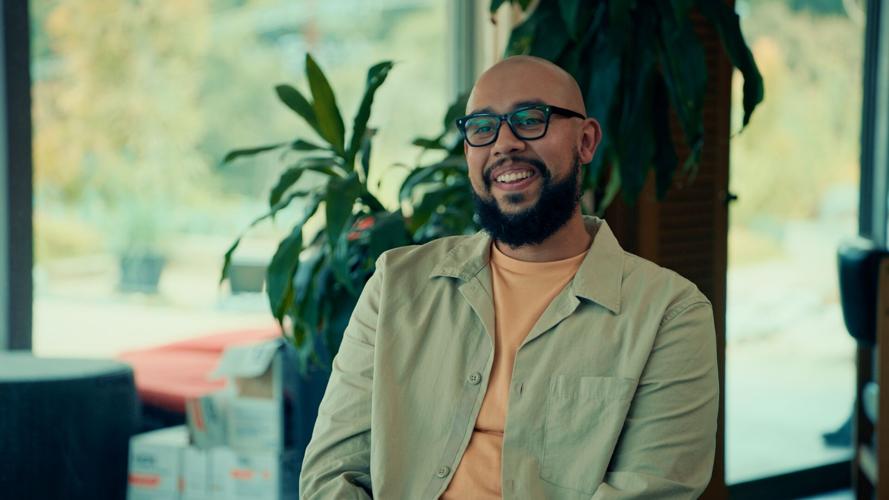
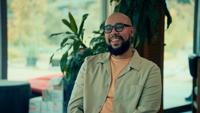
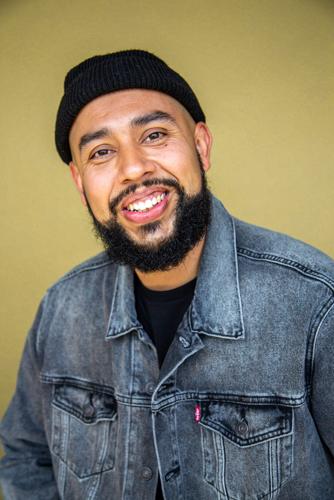
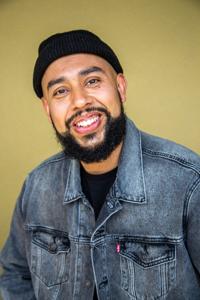
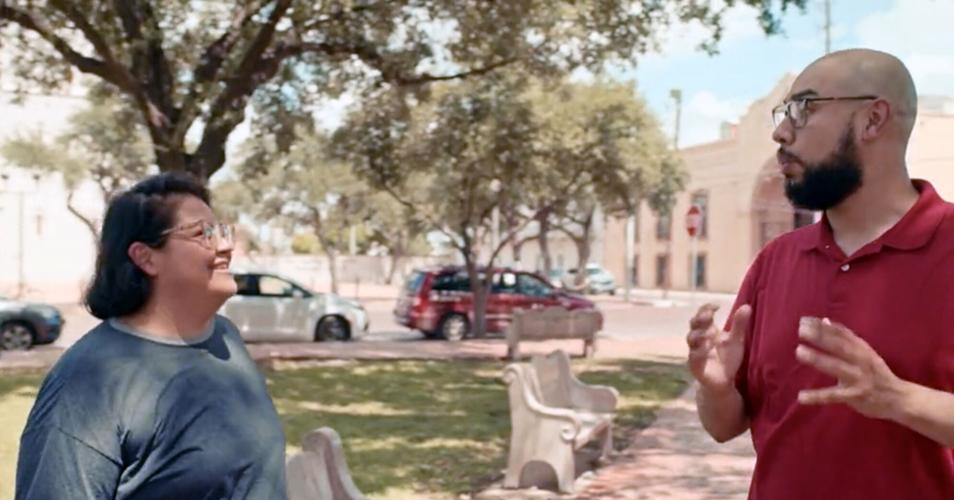
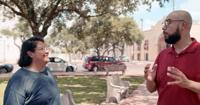

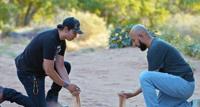
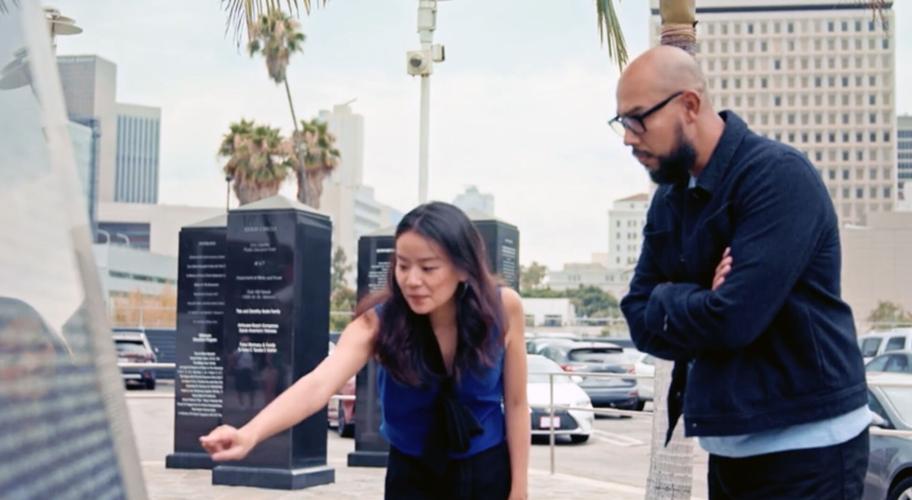




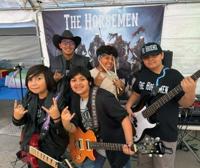



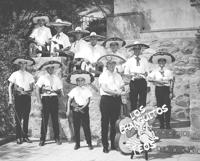


(0) comments
Welcome to the discussion.
Log In
Keep it Clean. Please avoid obscene, vulgar, lewd, racist or sexually-oriented language.
PLEASE TURN OFF YOUR CAPS LOCK.
Don't Threaten. Threats of harming another person will not be tolerated.
Be Truthful. Don't knowingly lie about anyone or anything.
Be Nice. No racism, sexism or any sort of -ism that is degrading to another person.
Be Proactive. Use the 'Report' link on each comment to let us know of abusive posts.
Share with Us. We'd love to hear eyewitness accounts, the history behind an article.